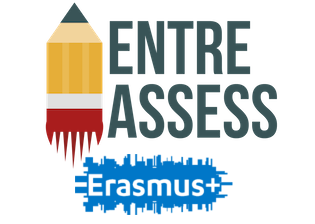Definition: The ‘e’ in e-assessment stands for ‘electronic’. E-assessment is thus defined as when computers are used to support assessment for / of learning.
 Description: E-assessment ranges from simple computer-based tests with multiple-choice questions to complex and multimedia rich simulations, games, case studies and e-portfolios. It thus encompasses a broad range of assessment methods used in computer-based learning environments, often termed ‘E-learning’. E-assessment can be used both for high-stakes and for low-stakes testing, as well as both for summative and formative assessment. Teachers can distribute questions and tasks as well as collect and analyse student responses. Some marking can be automated.
Description: E-assessment ranges from simple computer-based tests with multiple-choice questions to complex and multimedia rich simulations, games, case studies and e-portfolios. It thus encompasses a broad range of assessment methods used in computer-based learning environments, often termed ‘E-learning’. E-assessment can be used both for high-stakes and for low-stakes testing, as well as both for summative and formative assessment. Teachers can distribute questions and tasks as well as collect and analyse student responses. Some marking can be automated.
Benefits: By using e-assessment tools, various administrative tasks can be passed on to computers, freeing up time for teachers to focus on formative assessment and feedback. E-assessment can also be used to let computers adapt questions and tasks to each student’s individual circumstances and replies. The more complex forms of e-assessment can be used to assess higher-order thinking and transferable skills.
Challenges: Many of the less complex forms of e-assessment use simple right-or-wrong questions, and have therefore been criticised for relying on and promoting an outdated model of surface and rote learning, focusing solely on recall of simple facts. While more complex forms of e-assessment avoid such criticism, the resulting problem is instead the high cost and difficulty in designing and validating questions and tasks.
Applied to entrepreneurial education: Assuming that challenges around surface learning are taken into account, the less complex forms of e-assessment can be used in entrepreneurial education to increase the focus on formative assessment. Short quizzes can be administered while a course is still on-going, allowing for adjustments and feedback. The more complex forms of e-assessment often require solutions tailored to the specific entrepreneurial contents and processes for a course or a program. There are a number of entrepreneurship specific simulations and games available. Examples include SimVenture, MarkStrat and SimBrand. Another potential use of e-assessment in entrepreneurial education is to use applications not specifically designed for assessment, such as online word processors, online forums and social media. An interesting avenue for the future is to use computers to facilitate the experiential and action-based nature of many kinds of entrepreneurial education, see for example the e-assessment tool LoopMe. Such approaches have become more affordable as many students today have access to a smartphone where apps can be easily deployed for assessment purposes.


